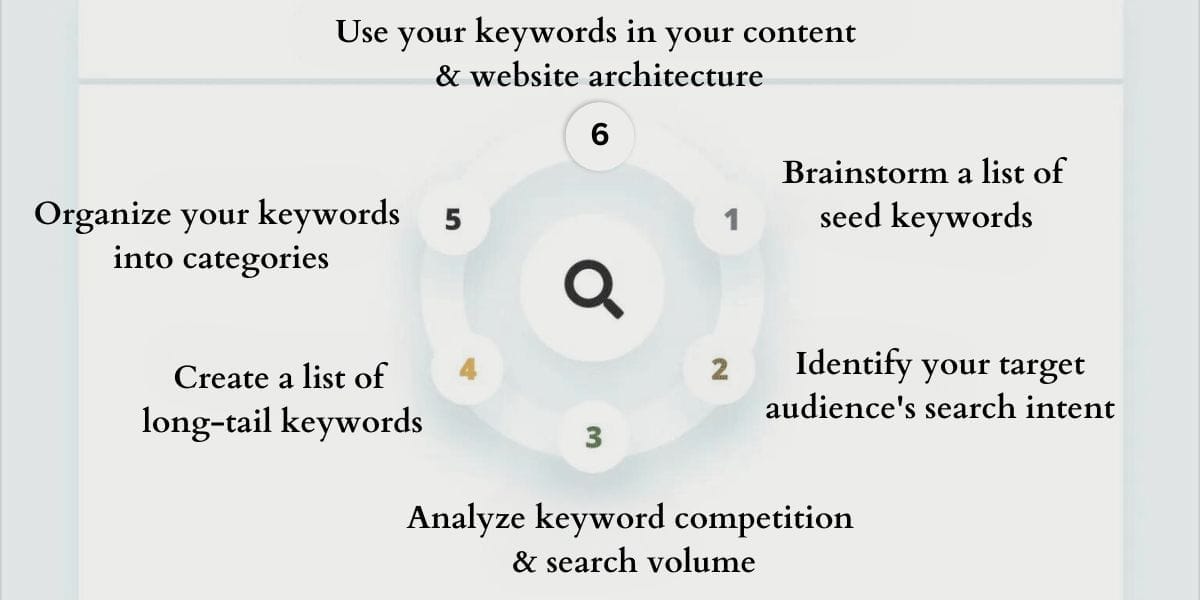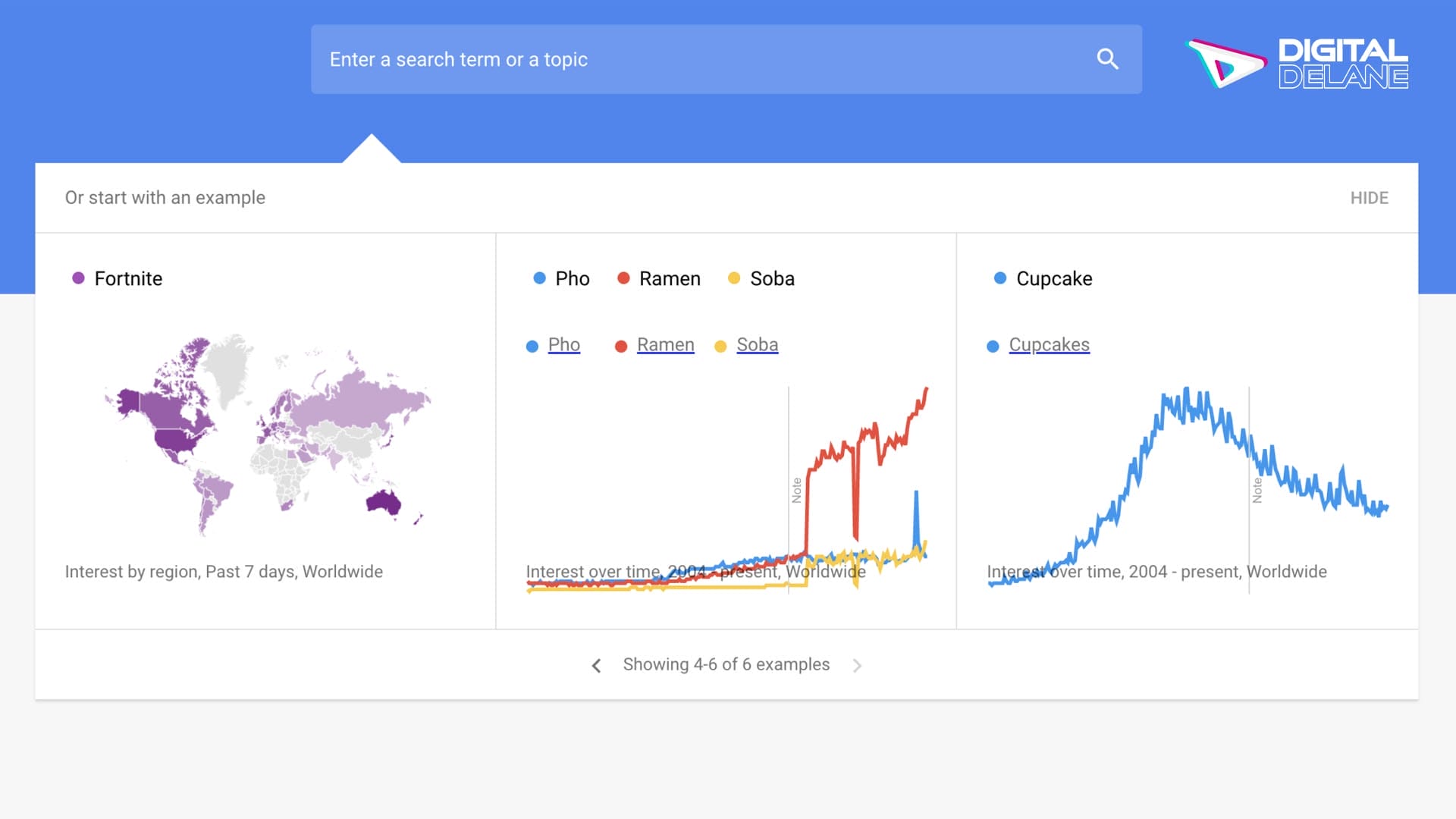How to Conduct Keyword Research for Your SEO Strategy

In today’s digital world, having a strong online presence is crucial for any business looking to succeed. At the core of any successful digital marketing strategy is Search Engine Optimization (SEO). One key element of a solid SEO strategy is conducting keyword research. Keywords are the foundation of how search engines work, allowing them to understand the purpose and relevance of web pages. By targeting the right keywords, businesses can drive relevant traffic to their websites and ultimately increase their search engine rankings.
But how exactly do you conduct keyword research for your SEO strategy? In this article, we will explore the step-by-step process of finding and selecting the most effective keywords for your website. From understanding your target audience to using keyword research tools, we will provide you with the knowledge and tools you need to boost your online visibility and outrank your competition. So, let’s dive in and start optimizing your website for search engines!


What is keyword research?
Keyword research is the process of identifying the most relevant and popular search terms that people use when looking for information, products, or services on search engines like Google. By understanding what keywords your target audience is using, you can create optimized content that matches their search intent.
Boost Your Business with New AI Trends – Get a Free Strategy Session Today
Why is keyword research important for SEO?


Keyword research is crucial for SEO because it helps you understand the language your potential customers are using and the topics they are interested in. By incorporating these keywords into your website and content, you can improve your search engine rankings and drive targeted traffic to your site.
Benefits of conducting keyword research
Conducting keyword research offers several benefits. First, it allows you to find the best keywords to target and optimize your content around them. Second, it helps you discover new keyword ideas and uncover search trends that can inform your content strategy. Third, it enables you to analyze keyword competition and search volume, allowing you to prioritize your efforts for maximum impact.
Types of keywords
Keywords can be classified into different types based on their length and specificity. Broad keywords, also known as short-tail keywords, consist of one or two words and have a higher search volume but are more competitive. Long-tail keywords, on the other hand, are more specific and longer phrases that have lower search volume but are easier to rank for.
Search intent
When conducting keyword research, it is essential to consider the search intent behind each keyword. Search intent refers to the underlying purpose or motivation behind a user’s search query. Understanding search intent helps you align your content with what users are looking for, whether it is informational, navigational, transactional, or commercial.
Step-by-step guide to keyword research


It can be overwhelming to know where to start with keyword research. That’s why we have created this step-by-step guide to help you navigate through the process. Whether you are a beginner starting from scratch or an experienced marketer looking to refine your keyword strategy, this guide will give you the tools and knowledge to conduct effective keyword research. By following these steps, you will be able to identify the right keywords to optimize your website and boost your search engine rankings.
Here is a step-by-step guide on how to conduct keyword research for your SEO strategy:
Brainstorm a list of seed keywords
These are the main keywords that you want your website to rank for. To come up with a list of seed keywords, think about what your target audience is searching for when they’re looking for your products or services. You can also use keyword research tools like Google Keyword Planner or Ahrefs to generate keyword ideas.
Identify your target audience’s search intent
Once you have a list of seed keywords, it’s important to identify the search intent behind each keyword. Search intent is the purpose behind a search query. Are users looking for information, a product, or a service? By understanding search intent, you can choose the right keywords to target for your content.
Analyze keyword competition and search volume
Not all keywords are created equal. Some keywords are more competitive than others, meaning it will be more difficult to rank them. It’s also important to consider search volume or the number of times a keyword is searched for each month. You want to choose keywords that have a decent search volume, but not so much competition that it will be impossible to rank for them.
Create a list of long-tail keywords
Long-tail keywords are more specific and less competitive than short-tail keywords. For example, the short-tail keyword “dog food” is very competitive, but the long-tail keyword “best dog food for puppies with allergies” is less competitive and more likely to convert. When creating your list of keywords, be sure to include a mix of short-tail and long-tail keywords.
Organize your keywords into categories
Once you have a list of keywords, it’s helpful to organize them into categories. This will make it easier to create content that targets specific groups of keywords. For example, you might have categories for product keywords, information keywords, and blog post keywords.
Use your keywords in your content and website architecture
Now that you have a list of keywords, you need to use them throughout your content and website architecture. This will help your website rank higher in search engine results pages (SERPs) for your target keywords. Be sure to use your keywords in your page titles, meta descriptions, header tags, and throughout the body of your content.
Tips for conducting keyword research


Use keyword research tools
Keyword research is an essential part of any successful SEO strategy. By using keyword research tools, such as Google Keyword Planner or SEMrush, you can gain valuable insights into the most relevant and high-performing keywords for your website or content. These tools allow you to analyze search volume, competition, and even suggested keyword variations. When conducting keyword research, it’s crucial to consider the intent behind each keyword.
Are users looking for information or are they ready to make a purchase? This will help you optimize your content accordingly. Additionally, it’s essential to prioritize long-tail keywords, as they often have less competition and can attract more targeted traffic. It’s also important to keep an eye on trends and seasonal keywords that may be relevant to your business. In conclusion, using keyword research tools is the foundation of effective SEO. It allows you to uncover valuable insights and optimize your content strategy for maximum visibility and reach.
Analyze your competitor’s websites
Keyword research is an essential step in any SEO strategy, as it helps businesses identify the most relevant and popular search terms that their target audience uses. When conducting keyword research, it is crucial to analyze competitor’s websites. By examining the keywords they are targeting, businesses can get insights into the keywords that have been proven to work in their industry. It allows businesses to understand what keywords their competitors are ranking for and what opportunities might be available for them.
This analysis also helps uncover gaps in their own keyword strategy and identify new keywords to target. Additionally, analyzing competitor websites can help businesses evaluate the effectiveness of their own keyword strategy and make improvements where necessary. By staying informed about competitor’s keyword targeting, businesses can stay competitive and improve their chances of ranking higher in search engine results. Therefore, it is highly recommended to include competitor website analysis as part of the keyword research process.
When conducting keyword research, it is important to stay updated with the latest trends and topics that are relevant to your industry. One effective way to identify these trends is by using social media platforms. Social media allows you to gain insights into what people are talking about and what topics are currently popular.
By monitoring hashtags, conversations, and trending topics on platforms like Twitter, Facebook, and Instagram, you can get a better understanding of the keywords that are frequently used by your target audience. Additionally, social media can also provide valuable information about the language and tone that resonates with your audience, helping you optimize your keyword research and understand how to effectively communicate with them. Use social media as a tool to stay in touch with your target market and identify new and trending keywords that will enhance your keyword research strategy.
Ready to Discuss Your Project? Chat With Our Marketing Team
Pay attention to search trends


When conducting keyword research, it is crucial to pay attention to search trends. Stay updated with the latest search trends as they can provide valuable insights into what keywords are popular among users. Tools like Google Trends can help track the rise and fall of specific search terms over time. It is essential to focus on keywords that are currently in high demand as this will increase the chances of your content being found by your target audience. Additionally, pay attention to long-tail keywords, which are more specific and have less competition.
These keywords may have a lower search volume, but they often generate higher-quality traffic. Furthermore, analyze your competitors’ keywords by researching their content and websites. This will give you an idea of their SEO strategy and help you identify potential gaps where you can target keywords that they may have missed. Remember, tracking and adapting to search trends are vital for a successful keyword research strategy.
Advanced keyword research techniques
Advanced keyword research techniques can help you find more specific and less competitive keywords to target. This can lead to higher rankings in search engine results pages (SERPs) and more traffic to your website.
Here are a few advanced keyword research techniques:
- Use LSI keywords. LSI keywords, or latent semantic indexing keywords, are words and phrases that are related to your main keyword. For example, LSI keywords for the keyword “dog food” include “puppy food,” “dog treats,” and “dog nutrition.” When you use LSI keywords in your content, it helps search engines understand what your content is about and rank it higher in SERPs.
- Use keyword modifiers. Keyword modifiers are words or phrases that you can add to your keywords to make them more specific. For example, you could add the keyword modifier “reviews” to the keyword “dog food” to create the keyword “dog food reviews.” Using keyword modifiers can help you find less competitive keywords to target.
- Use Google Trends. Google Trends is a tool that you can use to see how popular search terms are over time. You can also use Google Trends to identify trending topics and related search terms. This information can be helpful in generating keyword ideas.
- Analyze your competitors’ paid search campaigns. If your competitors are using paid search advertising, you can analyze their campaigns to see what keywords they are targeting. This information can give you some ideas of additional keywords to target.
- Use keyword clustering. Keyword clustering is the process of grouping related keywords together. This can be helpful in organizing your keyword research and identifying new keyword opportunities.
Here are some additional tips for using advanced keyword research techniques:
- Use a variety of data sources. Don’t rely on just one data source for your keyword research. Use a variety of sources, such as keyword research tools, Google Trends, and your competitors’ websites.
- Think like your target audience. When choosing keywords, think about how your target audience is searching for information. What words and phrases are they likely to use?
- Be creative. Don’t be afraid to think outside the box when it comes to keyword research. Try using different combinations of keywords and keyword modifiers.
By using advanced keyword research techniques, you can find more specific and less competitive keywords to target. This can lead to higher rankings in SERPs and more traffic to your website.
Do you want to grow faster? Schedule a free consultation call with an expert
Keyword research best practices


Here are some keyword research best practices:
- Focus on relevance. The most important factor in keyword research is relevance. Choose keywords that are relevant to your business, your products or services, and your target audience.
- Consider search intent. When choosing keywords, consider the search intent of your target audience. Are they looking for information, a product, or a service? Choose keywords that match their search intent.
- Use a mix of short-tail and long-tail keywords. Short-tail keywords are more general and have higher search volume, but they are also more competitive. Long-tail keywords are more specific and have lower search volume, but they are also less competitive. Use a mix of both short-tail and long-tail keywords in your keyword research strategy.
- Use keyword research tools. There are a number of keyword research tools available, such as Google Keyword Planner, Ahrefs, and SEMrush. These tools can help you generate keyword ideas, analyze keyword competition and search volume, and identify related keywords.
- Analyze your competitors’ websites. Take a look at your competitor’s websites to see what keywords they are targeting. This can give you some ideas of additional keywords to target.
- Monitor your keyword performance. Once you have chosen your keywords, it is important to monitor their performance over time. This will help you identify which keywords are working well and which ones need to be adjusted.
Here are some additional tips:
- Use keyword modifiers. Keyword modifiers are words or phrases that you can add to your keywords to make them more specific. For example, you could add the keyword modifier “reviews” to the keyword “dog food” to create the keyword “dog food reviews.”
- Use synonyms and related keywords. When choosing keywords, consider using synonyms and related keywords. This will help you reach a wider audience. For example, synonyms for the keyword “dog food” include “dog food pellets” and “canine food.” Related keywords for the keyword “dog food” include “dog treats” and “puppy food.”
- Keep your keyword list updated. The keyword landscape is constantly changing, so it is important to keep your keyword list updated. Regularly review your keyword list and add or remove keywords as needed.
By following these best practices, you can conduct keyword research that will help you improve your SEO strategy and attract more visitors to your website.
Common keyword research mistakes
Here are some common keyword research mistakes:
- Focusing on the wrong keywords. It’s important to choose keywords that are relevant to your business and that your target audience is actually searching for. Otherwise, you’ll be wasting your time and resources trying to rank for keywords that no one cares about.
- Ignoring search intent. Not all keywords are created equal. Some keywords are informational (e.g., “how to fix a leaky faucet”), while others are transactional (e.g., “plumber near me”). If you’re targeting the wrong type of keyword, you’re less likely to attract the right kind of traffic.
- Not using a variety of keyword types. As mentioned above, there are different types of keywords, such as short-tail, long-tail, and broad match. If you’re only targeting one type of keyword, you’re missing out on a lot of potential traffic.
- Not using keyword research tools. There are a number of keyword research tools available that can help you identify the right keywords to target. Not using these tools is a missed opportunity.
- Not analyzing your competitors. By analyzing your competitors’ websites, you can see what keywords they’re targeting and how they’re ranking for them. This information can be very helpful in developing your own keyword research strategy.
- Not tracking your results. Once you’ve chosen your keywords, it’s important to track your results and see how you’re ranking for them. This information can help you identify which keywords are working well and which ones need to be adjusted.
Here are some additional tips to avoid common keyword research mistakes:
- Be specific. The more specific your keywords are, the easier it will be to rank for them. For example, instead of targeting the keyword “dog food,” try targeting the keyword “best dog food for puppies with allergies.“
- Use long-tail keywords. Long-tail keywords are more specific and less competitive than short-tail keywords. This means that you’re more likely to rank for long-tail keywords and attract the right kind of traffic.
- Use a variety of keyword types. Target a mix of short-tail, long-tail, and broad match keywords to reach a wider audience.
- Use keyword research tools. Keyword research tools can help you identify the right keywords to target and get insights into competition and search volume.
- Analyze your competitors. See what keywords your competitors are targeting and how they’re ranking for them.
- Track your results. Track your keyword rankings and see how you’re performing over time.
By avoiding these common keyword research mistakes, you can improve your SEO strategy and attract more visitors to your website.
Conclusion
Keyword research is an essential part of any SEO strategy. By conducting keyword research, you can optimize your website and content to rank higher in search engine result pages and attract targeted traffic. This involves understanding the various types of keywords, analyzing search intent, and using keyword research tools to identify the best keywords for your business.
Contact us today and discover the best keywords to improve your search engine rankings and drive relevant traffic to your website. By incorporating these keywords into your content and optimizing your website, you can enhance your online visibility and reach your target audience effectively.

















